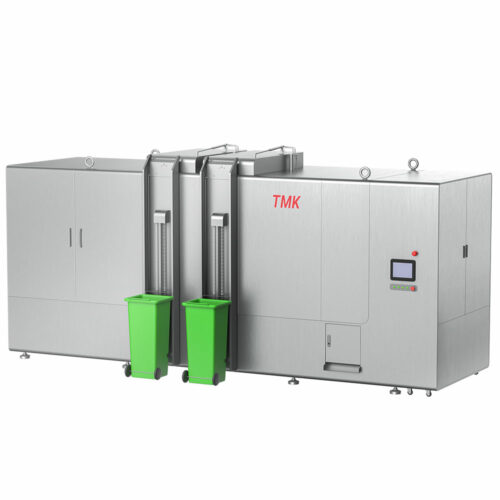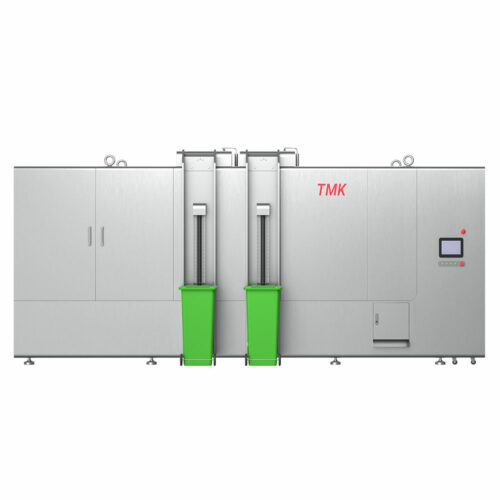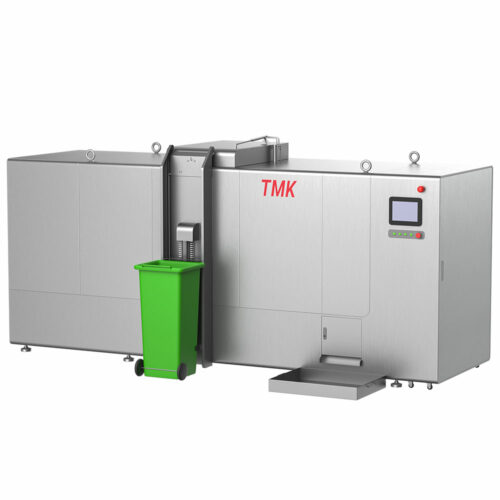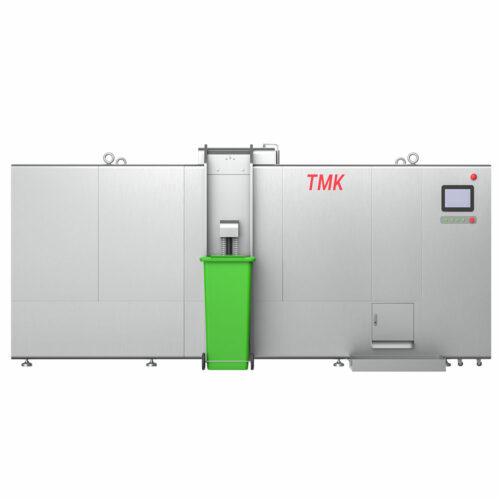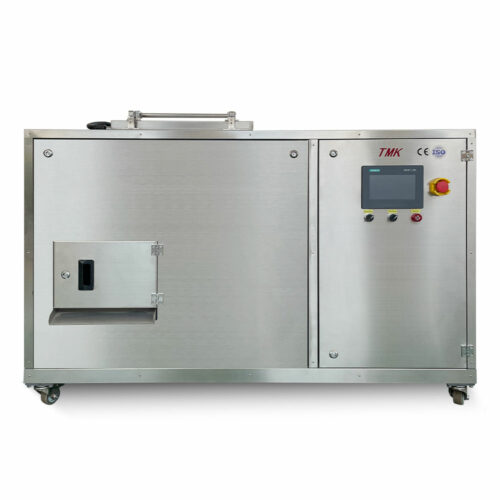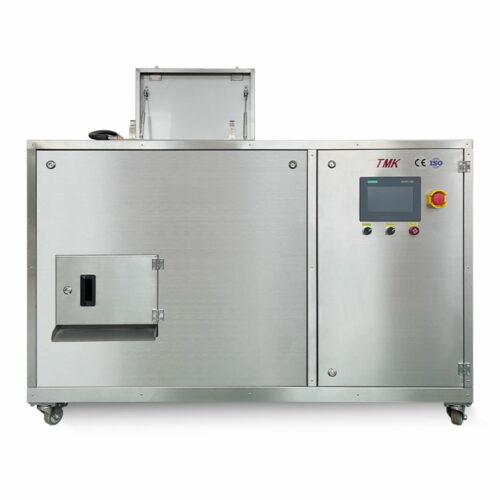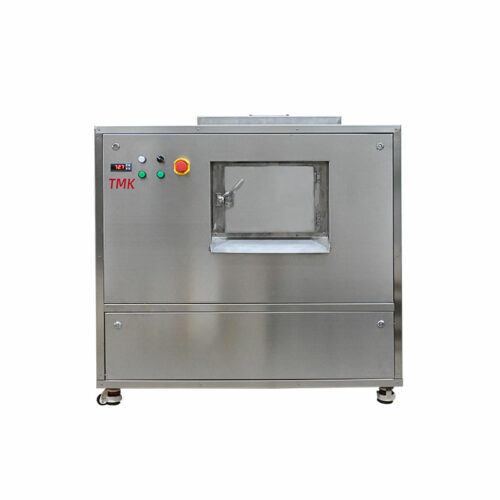In recent times, the global community has intensified its commitment to sustainable living and environmental conservation, recognizing the urgent need to address the escalating challenges of pollution and resource depletion. Amidst these concerns, composting technology has emerged as a transformative force in waste management, offering a sustainable solution to the ever-growing problem of waste disposal. At the forefront of this green revolution is the organic waste converter, a groundbreaking innovation that plays a pivotal role in turning organic waste into a valuable resource.
The organic waste converter (OWC) is designed to revolutionize the way we handle organic waste, offering an eco-friendly alternative to traditional waste disposal methods. By harnessing the power of microbial activity, these converters facilitate the natural decomposition of organic matter, transforming it into nutrient-rich compost. This compost, often referred to as “black gold,” serves as a valuable resource for soil enrichment, contributing to improved agricultural practices and sustainable food production.
While the benefits of organic waste conversion are undeniable, it is the advent of batch composting that has garnered significant attention in waste management circles. Batch composting involves the systematic decomposition of organic waste in controlled conditions, optimizing the conversion of waste into compost. This method, when coupled with advanced composting machines, streamlines the process and allows for efficient handling of large volumes of waste.
What sets batch composting apart is its ability to create a closed system where the composting environment can be carefully regulated. This controlled environment ensures that the microbial activity responsible for decomposition is optimized, resulting in a faster and more efficient conversion of organic waste into compost. The success of batch composting is exemplified by its widespread adoption across various scales, from individual households to large-scale industrial facilities.
As we navigate the challenges of pollution and resource depletion, the transformation of organic waste into a valuable resource through these technologies is reshaping our perspective on waste. It is not merely a byproduct to be discarded but an opportunity to create a more sustainable and harmonious relationship between human activity and the environment. Embracing composting technology is not just a necessity; it is a fundamental step toward building a greener and more resilient future for generations to come.
Understanding Batch Composting and Organic Waste Converters
Batch composting involves the controlled decomposition of organic waste in a closed system. This method is gaining popularity due to its efficiency and ability to handle large volumes of waste. At the heart of this process is the organic waste converter (OWC), a machine designed to accelerate the natural decomposition of organic waste. These machines vary in size, from small-scale food waste composters for households to larger industrial-grade units capable of handling significant quantities of organic waste.
The Impact on Food Waste Management
Food waste constitutes a substantial portion of our daily garbage, contributing to environmental degradation and greenhouse gas emissions. Batch composting, facilitated by advanced food waste compost machines, addresses this issue directly. By converting food waste into nutrient-rich compost, these machines not only reduce landfill pressure but also create a valuable resource for agriculture. The resulting compost enriches soil quality, enhances water retention, and promotes plant growth, fostering a sustainable loop in food production.
Reducing Landfill Dependency
Traditional waste disposal methods, such as landfills, have long been the primary means of managing our garbage. However, landfills are not a sustainable solution as they contribute to soil pollution, emit harmful gases, and occupy large areas of valuable land. Batch composting, powered by organic waste converter, significantly reduces our reliance on landfills. By diverting organic waste from these dumping grounds, we minimize environmental impact and promote a circular economy where waste becomes a resource rather than a burden.
Energy and Resource Conservation
The composting process in an organic waste converter is not only eco-friendly but also energy-efficient. These machines utilize controlled microbial activity to break down organic matter, eliminating the need for energy-intensive processes like incineration. Additionally, the compost produced acts as a natural fertilizer, reducing the dependency on synthetic fertilizers that require significant energy inputs in their manufacturing. This shift towards sustainability in waste management is a step towards a more energy-efficient and resource-conserving future.
Community-Level Impact
Implementing batch composting at the community level has the potential to create a sense of environmental responsibility among residents. Small-scale organic waste compost machines, designed for households and local businesses, empower communities to take charge of their waste. This decentralized approach not only minimizes transportation costs associated with waste disposal but also fosters a collective commitment to sustainable living. As individuals witness the transformation of their organic waste into valuable compost, they become active contributors to a greener, healthier planet.
Government Policies and Regulations
The success of composting technologies is intrinsically linked to the regulatory landscape shaped by governments. Recognizing the environmental benefits of composting, many regions worldwide are taking proactive steps to incentivize businesses and individuals to embrace sustainable waste management practices. Beyond tax incentives, grants, and subsidies for the acquisition of organic waste converters, governments are also exploring comprehensive policies that mandate or encourage the incorporation of composting practices into waste management systems. This multifaceted approach creates a conducive environment for the widespread adoption of batch composting methods, fostering a culture of sustainability that aligns with broader environmental goals and global initiatives for a greener future.
Challenges and Future Innovations
However promising batch composting may be, it is essential to acknowledge the persistent challenges that stand in the way of its widespread adoption. One of the foremost hurdles lies in ensuring efficient waste segregation at the source. While composting technology offers a sustainable solution for organic waste, the effectiveness of the process hinges on the proper separation of organic and non-organic materials at the point of disposal. Without this crucial step, contaminants can compromise the quality of the compost and impede the overall effectiveness of the composting process.
Moreover, the success of composting initiatives is intrinsically tied to public awareness and education about composting methods. Many communities still lack comprehensive understanding and knowledge about the benefits and intricacies of composting. Bridging this gap requires concerted efforts in educating individuals, businesses, and communities about the importance of composting, how to correctly segregate waste, and the positive environmental impacts of these practices.
Infrastructure also emerges as a significant challenge, particularly when considering large-scale composting facilities. Establishing and maintaining such facilities demands substantial investments in both financial and logistical terms. Without robust infrastructure, the scalability and efficiency of composting initiatives may be compromised, limiting their impact on waste management at a broader scale.
While batch composting represents a positive stride towards sustainable waste management, addressing challenges related to waste segregation, awareness, and infrastructure is crucial for its success. The future trajectory of composting technology lies in continuous innovation, with a focus on automation, microbial process optimization, and integration with complementary sustainable practices. Overcoming these challenges and fostering ongoing innovation will undoubtedly contribute to the evolution of composting technology into a comprehensive and efficient solution for managing organic waste on a global scale.
Conclusion
In conclusion, the transition from waste to resource through batch composting and the use of organic waste converters represents a paradigm shift in our approach to trash. By harnessing the natural processes of decomposition, we are not only mitigating the harmful effects of traditional waste disposal methods but also creating a valuable resource for agriculture. The impact goes beyond waste reduction, influencing community behavior, government policies, and the overall sustainability of our planet. As we embrace composting technology, we take a significant step towards a more circular and regenerative economy, where waste becomes a precious resource, and our planet thrives.
An integral player in this transformative journey is the smart batch composter. This innovative machine, equipped with a shredder and mixer, revolutionizes the composting process by simultaneously mixing and shredding waste to a uniform size. What sets the smart batch composter apart is its ability to blend composting culture and dry materials, such as leaves and sawdust, with the shredded waste to absorb excess moisture, ensuring an optimal composting environment.
The key features of the smart batch composter further enhance its appeal. With basic and straightforward operation, it caters to a wide range of users, from households to industrial facilities. The composting cycle, lasting only 10 to 12 days, reflects the efficiency of this technology in rapidly transforming organic waste into valuable compost. Additionally, the built-in safety measures and a control panel with pre-set batch time contribute to a user-friendly and secure composting experience.
As we advocate for the adoption of composting technology, the emergence of smart batch composters represents a pivotal development. Their efficiency, simplicity, and quick composting cycles make them a beacon in sustainable waste management. By seamlessly integrating technology into the composting process, we not only address waste-related challenges but also pave the way for a future where responsible waste disposal is accessible to all. The incorporation of such smart solutions further solidifies our commitment to a circular and regenerative economy, where innovation meets sustainability, and our planet flourishes.
Commercial Composter
Commercial Composter
Commercial Composter
Commercial Composter

